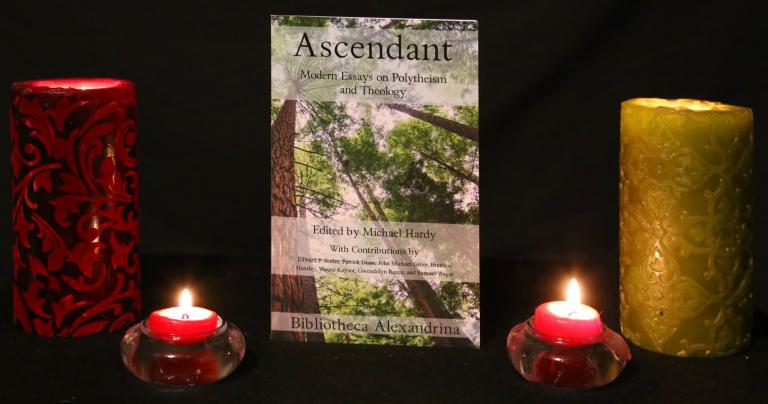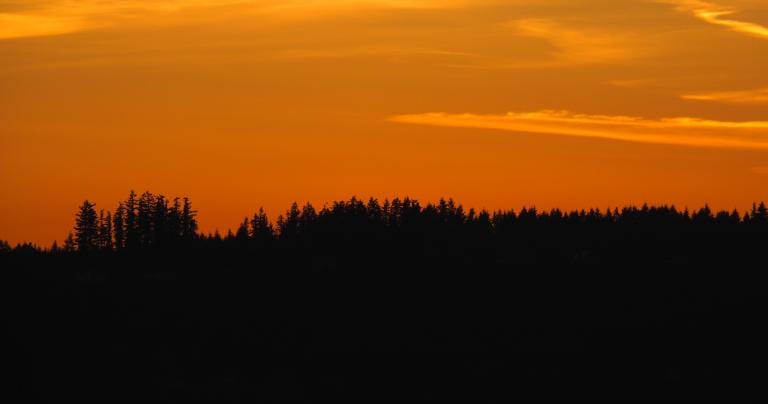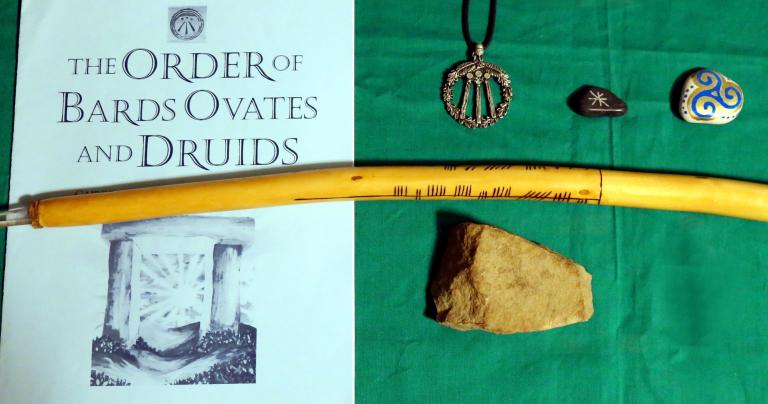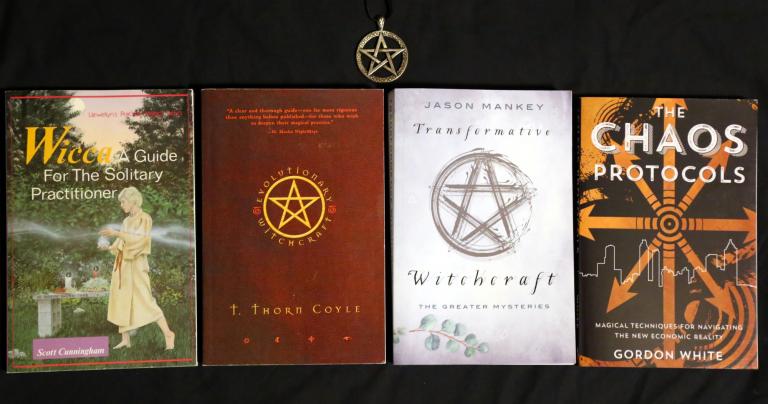This is the final post from the last Conversations Under the Oaks – and what a conversation it’s been! Normally I get two or three posts from the questions submitted. This time it’s eight… and five of them have been devoted to just one question.
The remaining questions are just as good, but they don’t require the lengthy reply that others did.
Are there any prerequisites for identifying as a Druid?
No. There is no International Druid Accreditation Agency who decides who is and isn’t a Druid.
That said, a Druid isn’t just anything. A witch isn’t a Druid. A qabbalist isn’t a Druid. And someone who models themselves after characters in a computer game isn’t a Druid.
When pushed, I give a rather OBOD-ish description. A Druid is a storyteller and a keeper of lore. A Druid is a seer and a keeper of wisdom. A Druid is a priest of Nature and the Gods of Nature. If that describes you, then you’re a Druid in my book.
For the last 300 years (more or less) Druidry has been practiced in orders. If you want to be a Druid, I encourage you to join a Druid order and complete their training program. OBOD is the largest Druid order in the world – their program is available in six languages. ADF is the largest Druid order in this country. I’m a member of both.
There are many other Druid orders in this country and around the world. Find the one that’s best for you.
What is your take on “pop culture Paganism”? That is, Paganism which draws upon fictional characters and philosophies as the basis for a real-world spiritual practice?
My first reaction to this question was “you’re trying to get me in trouble, aren’t you?”
It’s not my thing. I want to ground my Paganism in historical beliefs and practices. Not because that’s “right” – older doesn’t always mean better – but because it provides a tangible link to my ancestors. What worked for hundreds and in some cases thousands of years is usually more reliable than something invented last month.
At the same time, I’m not an Iron Age Celt – I’m a 21st century American. Our ancestors’ Paganisms spoke to them in their environment – ours must do the same. Sometimes this comes to us in pious devotion or religious ecstasy, but other times it comes to us in mass media.
If people find meaning in something, it’s real. That’s one of the lessons of the Reformed Druids of North America. So while I’m not fond of computer game Druids or lifestyle witches, if it works for you, that’s all that really matters.
How do you navigate between or among your priestly roles: as a priest for a God, but also as someone who often serves the folk in the capacity of what our culture expects of a priest?
My initial response is that I do it the same way I juggle my paying job, family obligations, and other parts of my life. Our mainstream society promotes the idea of being totally dedicated to just one thing (especially your paying job), but few of us actually do that – and that’s a good thing. We make time for all the things that are important to us.
The Pagan movement is still trying to figure out what a priest should be and do. We’re overly influenced by Catholic priests and Protestant ministers, and under-influenced by ancient priests who by and large were servants of a deity, not pastors of a congregation.
As the question states, I do both. My devotion and service to my Gods is the foundation of my priesthood. That work gives me the strength to serve my community… not to mention the direction of how to serve it.
I could serve my Gods without serving my community (assuming They would permit it, which I rather doubt) but I would be unable to serve my community without first serving my Gods.
As a polytheist leader, what is the biggest challenge you’re trying to deal with? What resources do you most feel a lack of as a leader?
My biggest challenge is articulating the importance of developing a worldview grounded in animism and polytheism, as opposed to the materialist and monotheist worldview of our mainstream culture. Our worldview controls what we think is and isn’t possible, and therefore what we will see and hear and do in our lives.
The resources I most lack are good works of Pagan and polytheist theology that aren’t Neoplatonism. Neoplatonism is the deepest of what survived from ancient times and I don’t dislike it, but it doesn’t exactly fit the kind of ecstatic polytheism I practice.
I’ve tried to address these challenges in my blogging, but at the end of the day I’m a working priest, not a theologian. I had high hopes for this about four years ago, but many of the better writers have moved on to other things, or no longer write for public consumption. I know some of them were hurt in the conflicts going on about that time.
There are people who do this work. We need more.

I have been attending interfaith events and devotional events with friends of a different religion this year, and wanted to ask about interfaith relations between Pagans and monotheists. How might polytheists and pantheists relate to religious monotheists, considering our views are so different? How do we respect their views while also speaking positively about Paganism?
Interfaith requires a good faith effort at communication and community on the part of all involved. What passes for “interfaith” in this country often means a bunch of Christians and a token Jew.
On the other hand, I’ve been a part of some good interfaith services and gatherings where everyone involved was respected and included.
We relate to others at interfaith events on the basis of our commonalities, not our differences. And our commonalities do NOT include the false idea that “deep down all religions are the same.” We share the same communities, the same nation, and the same planet. The Denton interfaith community that I’ve participated in shares a concern for the Earth, for the poor, and for the abused. We agree that these things are important even if we don’t agree why they’re important.
At the same time, we do not downplay our religious differences. When asked to explain Paganism (people at interfaith events are often curious but not very well-informed) I try to keep it simple:
“Nature is sacred and the Earth is our mother. There are many Gods and Goddesses and we honor the ones who call to us. We’re inspired by our ancestors and their beliefs and practices, which we’re restoring and reimagining for our world here and now. What we do and how we live are far more important than what we believe.”
Usually that’s enough. I avoid “compare and contrast” with other religions and I avoid talking about what we’re not if at all possible. Mainly, just talk about who you are, what you do, and why.
Do you recommend any beginner books for magic, especially with regards to things like centering, grounding, and defense? Good starter deck and book for Tarot? When praying to multiple Gods, how do you separate them? Or do you?
I’m not the best person to ask about beginning magic. I learned from a wide variety of sources (both books and in person) and while none of what I do is original, my own practice is somewhat unique to me. Most of what I teach is religion, not magic.
Cunningham’s Wicca: A Guide for the Solitary Practitioner is still a good place to start, especially the chapter on Magical Techniques. Thorn Coyle’s Evolutionary Witchcraft is very good for energy work. Jason Mankey’s new Transformative Witchcraft is heavy on Wiccan history, but the magic in it (particularly Part Two: The Cone of Power) is excellent. Gordon White’s The Chaos Protocols is not a beginner’s book, but I recommend reading it fairly early on your magical journey.
None of these books are concise “how to” guides. But if you’re serious about magic, you probably should read all of them. You’ll only use 10% to 20% out of any of them, but that’s how you build a magical tool box that’s right for you and not what someone else thinks you need.
My story of How I Learned Tarot may be helpful. I needed a combination of books, live teachers, and personal practice. As for a first deck, I’d recommend either the Waite-Smith deck (because it’s the most common and most books are based on it), or the Robin Wood Tarot (which has been called the most Neopagan deck of all time). Mainly, find something that resonates with you, but avoid novelty decks until you’re thoroughly familiar with the more standard ones.
As for praying to multiple Gods, I usually do that sequentially, one after the other – just like I’d do if there were five people in the room and I wanted to talk with all of them.




















